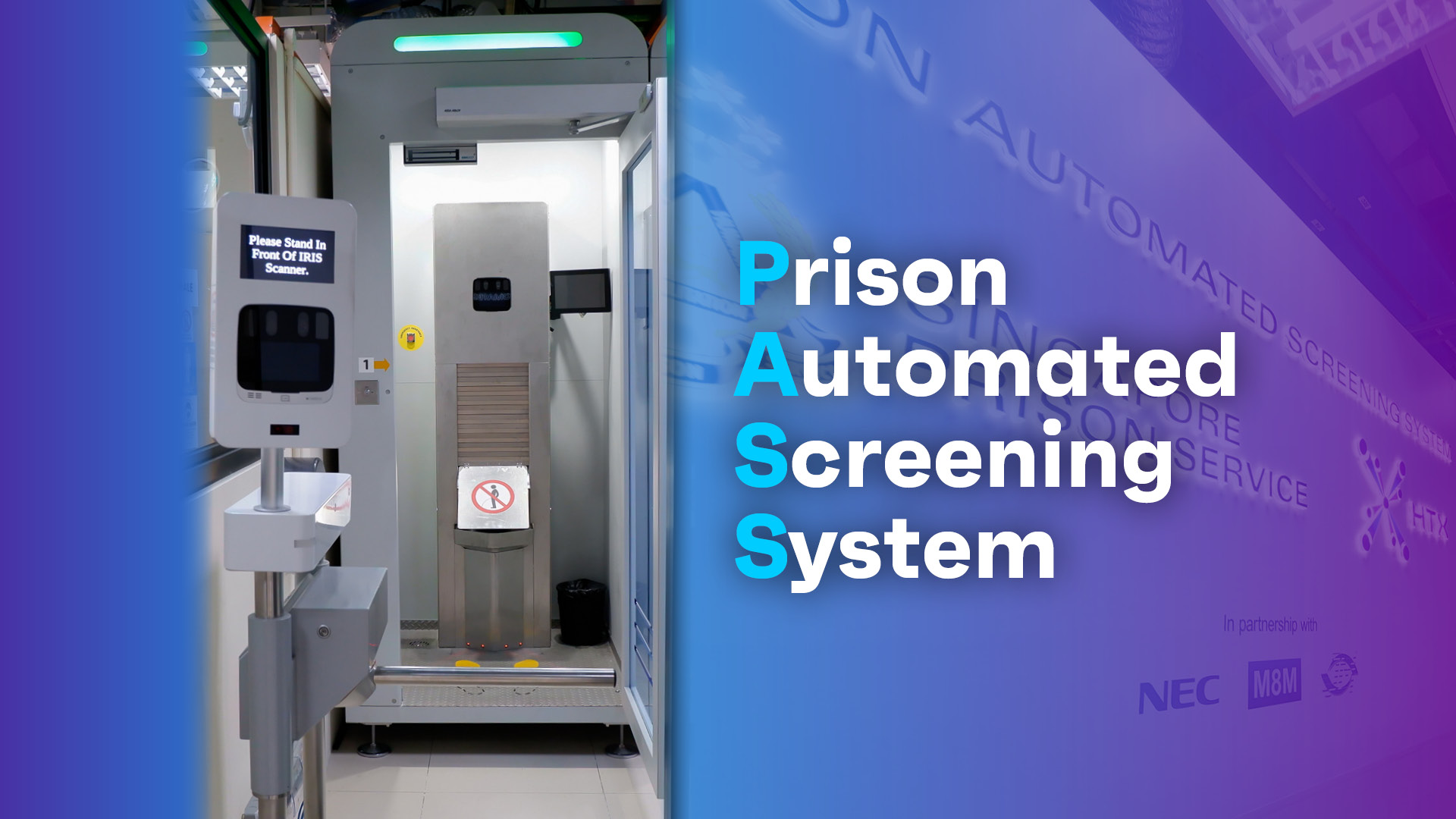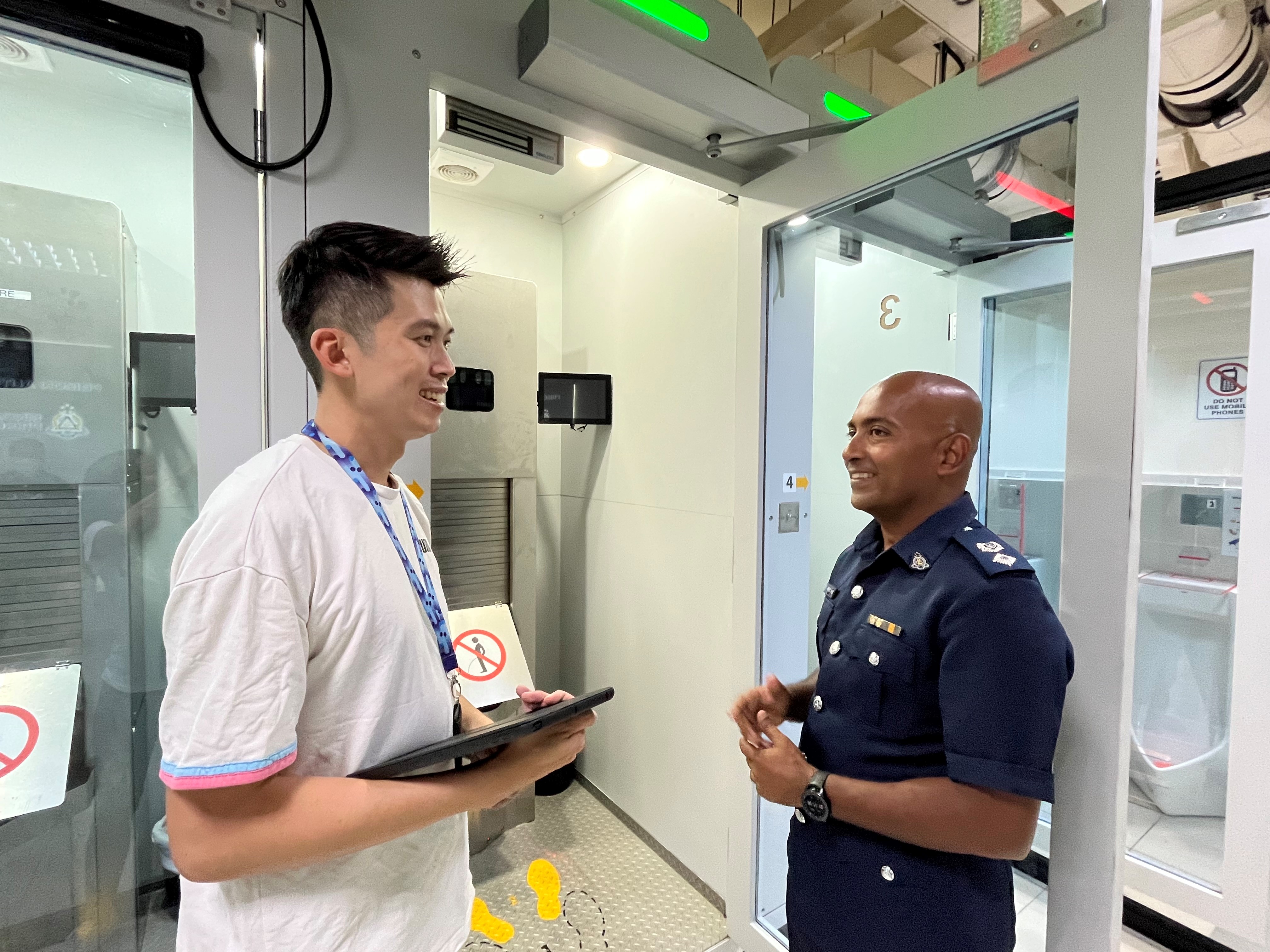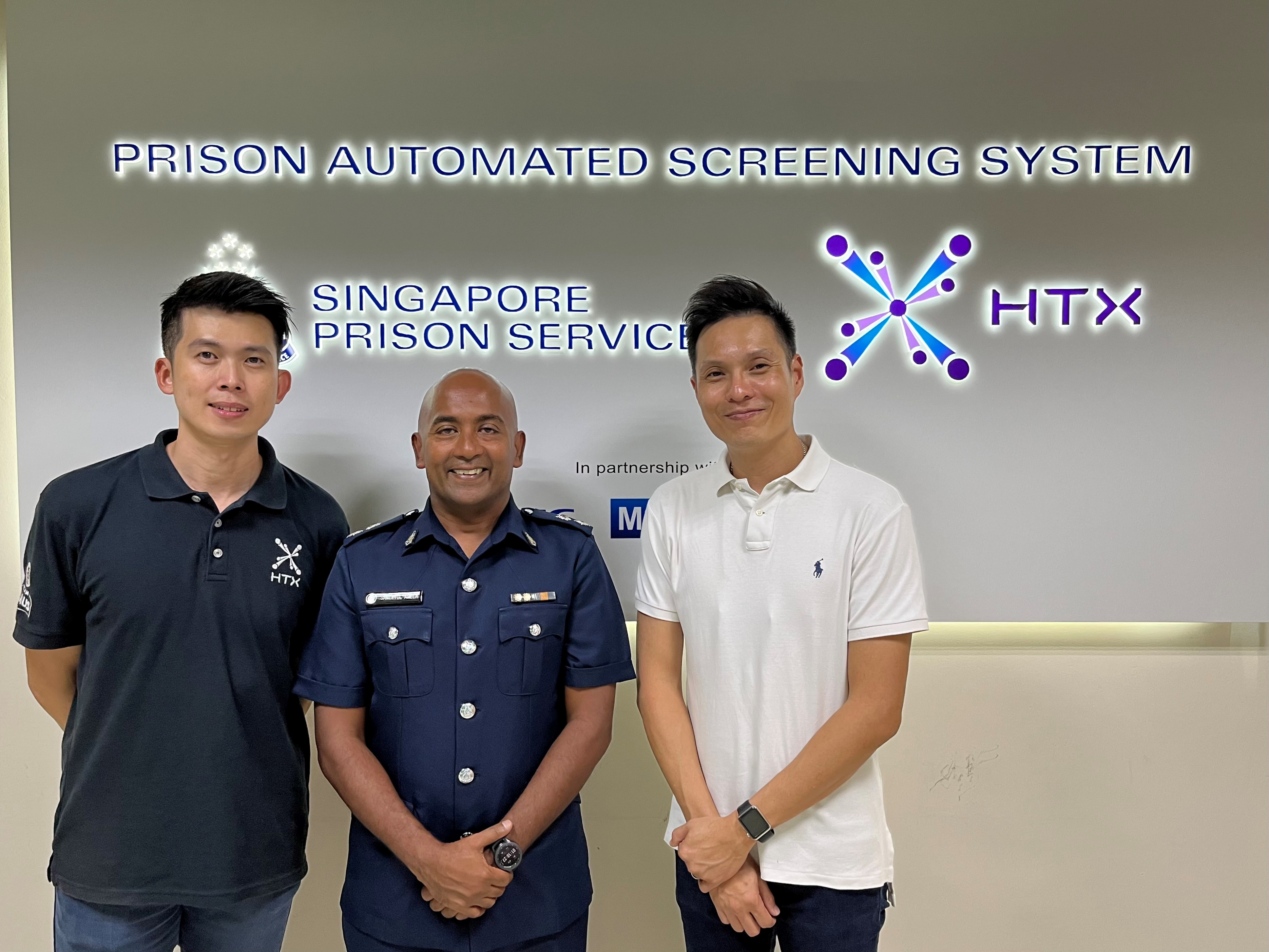The first-of-its-kind Prison Automated Screening System (PASS) automatically collects urine samples and screens them for illicit drugs. 
The Prison Automated Screening System (PASS) might look like
a portable toilet, but there’s more to it than meets the eye.
Developed by HTX in collaboration with the Singapore Prison Service (SPS), PASS is a first-of-its-kind solution that uses automation, robotics, sensors, and deep
learning technology to automatically collect urine samples and screen them for illicit drugs in a seamless manner.
“PASS is HTX’s first attempt to automate an end-to-end urine procurement and screening process in
a fully unsupervised and hygienic manner to improve the process and working environment of our Home Team officers involved in the drug supervision programme,” said Dr. Daniel Teo,
Deputy Director, Intelligence, Interactions & Inter-Ops (3i), Robotics, Automation and Unmanned Systems Centre of Expertise (RAUS
CoE).
PASS is currently on a proof-of-concept trial until February 2024, with four units deployed at the Selarang Park Community Supervision Centre. A successful trial could see more of such systems being deployed island-wide in future, making
it more convenient for supervisees as they reintegrate into society.
“With this live trial, we are working closely with the Singapore Prison Service to fine-tune the system and user experience as we explore deploying PASS island-wide,”
Dr. Teo said.
Embracing technology for rehabilitation
Currently, supervisees are sent an SMS and have to report to Selarang Park Community Supervision Centre located in Changi for drug testing the following day. “It
is disruptive to their lives and work,” Dr. Teo explained.
“We are using technology and developing this automation solution not just to help the operations of our Home Team Department, but also to potentially serve thousands
of supervisees. PASS can be decentralised to different parts of Singapore and supervisees would be able to go to any of the reporting centres at their convenience, even after working hours, with less disruption to their lives,” he said.
“We can help supervisees to integrate better back into society,” he added. “This project is meaningful as I see how technology is contributing to the success of the rehabilitation programme.”
Collaborating to innovate
The idea behind PASS was first mooted by SPS, with the objective to automate the urine procurement and screening process, freeing up SPS officers to engage the supervisees purposefully to facilitate
their reintegration into society.
SPS’ Community Corrections Command (COMC) oversees the management of supervisees undergoing Community-Based Programmes (CBPs) in the community towards the tail-end of their sentences. While on
CBP, the supervisees undergo a strict supervision regime, which may include electronic tagging, compulsory counselling, and urine testing. About 5,000 urine tests are conducted every month on supervisees placed under CBPs.
According
to Deputy Superintendent of Prisons (DSP) Sameeyul Ameen Haji Sulaiman, OC Security & Enforcement, COMC/OSB, manual urine tests are labour intensive and comprise many steps including manually registering the supervisee, supervising urine procurement,
and conducting drug testing on each supervisee’s urine sample.
“You need a staff to be there to supervise the entire process and it is not a pleasant working environment. The supervisee may also feel uncomfortable, with
someone watching them,” he explained. With PASS, supervisees can deposit their urine samples on their own. 
(Left to right) HTX lead engineer Tee Wen Kai and Singapore Prison Service’s DSP Sameeyul worked closely on PASS, which has been on trial since September. (Photo: HTX/ Michelle Lim)
How PASS works
PASS is designed to be contactless for hygiene purposes. Biometrics technology is used for a seamless registration process for supervisees when they arrive for the screening and allows the system to be fully contactless and unsupervised.
Other features include an automatic door, as well as a urinal shutter and sensors that ensure that the user provides the urine sample at the right time with all steps conducted in the right sequence, have also been incorporated. The supervisee waits in the cubicle for the test result, which takes about five minutes.
The system is also user-friendly. An instructional video played inside the cubicle guides users on the entire process, explained Tee Wen Kai, Lead Engineer, RAUS CoE.
Wen Kai worked closely with SPS’ DSP Sameeyul on the safeguards that have been incorporated into the system to prevent foul play, ensuring that the testing is accurate, consistent, and free from contamination.
While the cubicle may seem deceptively simple from the front, behind it is a specially designed robotic gantry system that handles the test kits. Technology safeguards and deep learning aid in detecting and preventing tampering.
Wen Kai added that the project was a showcase of the strong collaboration by different areas of expertise at HTX including Biometrics and Profiling, Forensics, and Human Factors & Simulation. For example, he worked with scientists from the Forensics CoE on the test kit and screening process, including ensuring that the flush system designed was robust to prevent contamination.
The project, conceptualised at the end of 2019, has been built from the ground up with a lot of experimentation as there were no existing examples to follow. The system and user experience continue to be refined, such as screening short sitcom videos in the cubicle following feedback from supervisees to include some entertainment while they wait for the test result.

(From left to right) Tee Wen Kai, DSP Sameeyul Ameen Haji Sulaiman, and Dr. Daniel Teo at the Prison Automated Screening System trial at Selarang Park Community Supervision Centre. (Photo: HTX/ Michelle Lim)
PASS augmenting SPS’s operations in community corrections
Deputy Assistant Commissioner of Prisons Karen Lee, Director, Community Corrections Command, SPS, said: “Community Corrections is one of SPS’s key strategies in reducing re-offending. With more offenders in the community, PASS is an example of how the innovative use of technology could make the supervision of offenders in the community more efficient and effective.”
SPS hopes to deploy PASS island-wide if the trial is proven to be successful. Supervisees could then save time and resources, travelling to a more convenient location for their urine supervision. They would also be better able to focus on their reintegration journey, maintaining a lifestyle free from drugs.
For DSP Sameeyul, “PASS is a step forward, a leap of excellence.”
Read more about PASS in the media:
The Straits Times: Prison Service trialling automated urine collection and screening system
CNA: Automated urine tests for ex-offenders could be rolled out islandwide from 2024

![[FEATURED NEWS] Partners in giving ex-offenders second chances](/Cwp/assets/htx/images/listing-card-placeholder.png)